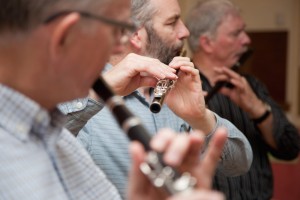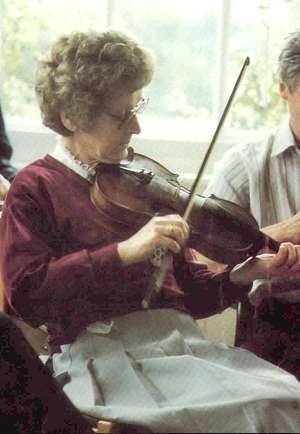 So there I was ready with a couple of reels for the week’s class and this reel popped into my head instead. Inspired by Rieke’s trip to Barra to pick cockles, we did Jenny Picking Cockles — I hope that the weather was good!
So there I was ready with a couple of reels for the week’s class and this reel popped into my head instead. Inspired by Rieke’s trip to Barra to pick cockles, we did Jenny Picking Cockles — I hope that the weather was good!
Jenny Picking Cockles is an Irish reel with a few variants and titles. In D mixolydian (it has C naturals instead of sharps), some versions have F naturals in the second part, which possibly borrows from a very similar three part reel called Jenny’s Welcome to Charlie. The version we did lifts and slides the C naturals in the second part through what was once termed “C supernatural” in online message boards to C# as it the tune transitions from C natural to D.
There is a suggestion that this reel may be associated with the north of Ireland and my own personal feeling is that “Jenny” tune titles also betray a Scottish connection, both Jenny and Jock(y) appearing in many earlier Scottish tune titles as generic female and male names.
It’s just an observation however and I have no other evidence for this wild assertion. More information on the origins over at Tune Archive. Different settings of the tune can be found over on The Session website. Our version can be found on the Resources page.
Here’s Eric, Hugh and Colm Healy, Noel O’Donoghue, Seán McGrath playing Jenny Picking Cockles, George Whites, Jenny’s Wedding:
Photo: Barra Cockle Beach by Fiona Cownie, some rights reserved.




